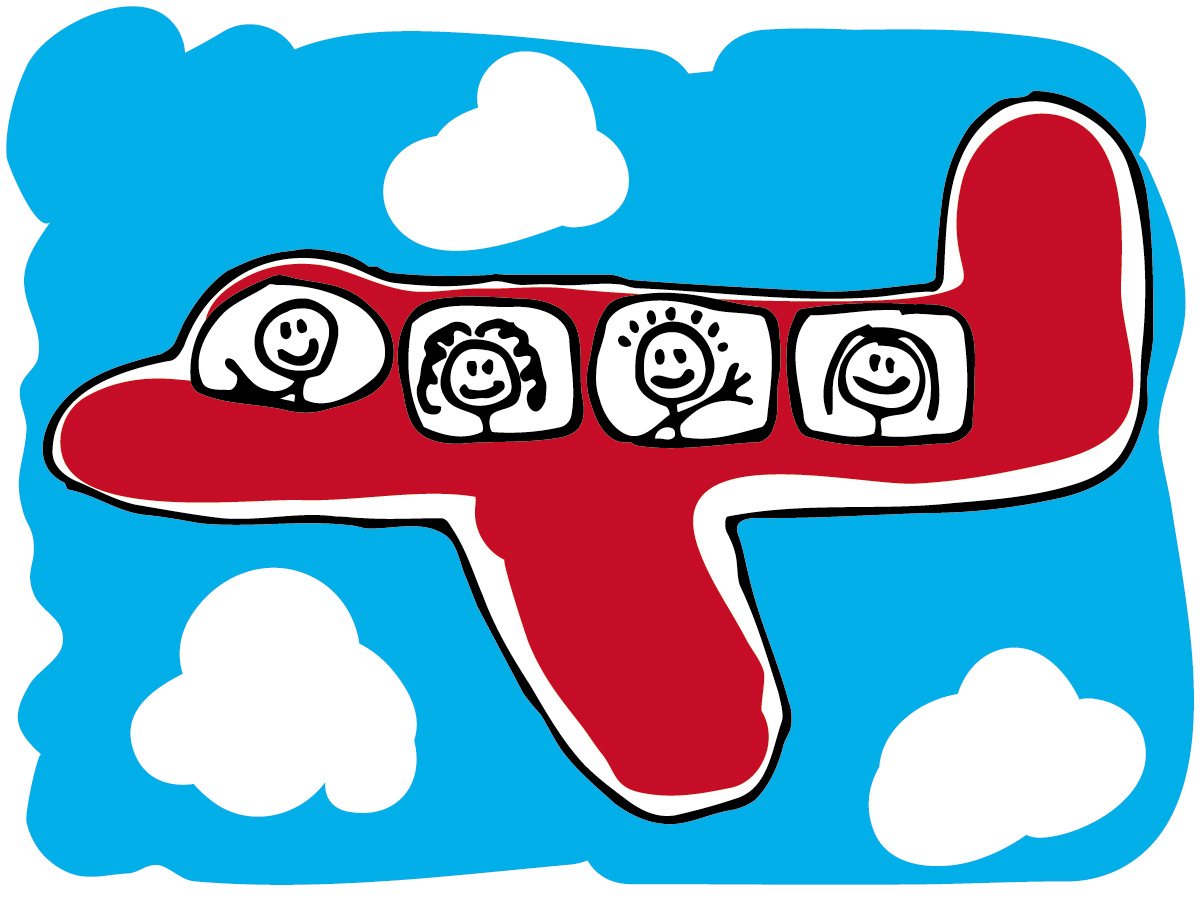If you gave birth less than 48 hours ago, you and your baby will not be not allowed to travel on an airplane. Babies between 2 and 7 days old can fly if you have a letter from your GP. If you have given birth by caesarian section you must wait 10 days before you can fly. In general, it is best to wait until the baby is over two weeks old.
What can I do for high altitude crying?
Babies of all ages do cry for various reasons. Check the usual suspects and respond accordingly: Is your baby hungry, wet or dirty, cold or warm, bored? If it's bright, try closing the window shade; if your baby wants a view, show her the one outside the window or in the pages of the airline's magazine. Sometimes changing the scenery is all it takes to stop a little crying, so if the seat belt sign is not illuminated, you may want to get up and walk the aisles. If all else fails, try not to let a few looks bother you and be assured that most people sympathize with the parents of a crying infant.
How to protect my baby's ear?
Any of you who have flown before know that ears can be quite sensitive to changes in pressure. Experiencing a difference in pressure causes a sensation that as many as 1 in 3 passengers (children more so than adults) experience as temporary muffled hearing, discomfort, or even pain. Unfortunately, having a stuffy nose or a head cold can increase a child's chances of ear problems.
For an adult, chewing gum or yawning is often all that is needed for the middle-ear pressure to equilibrate with the outer environment and make plugged-up ears pop. Perhaps part of the reason that babies tend to complain more about their ears than adults is because gum is simply not an option and we have yet to meet an infant who can yawn on command.
If your baby has a cold or ear infection, discuss with your pediatrician whether you can give him an infant pain reliever, some decongestant, or whether it's best to postpone flying. In most instances, travel plans are not flexible enough to cancel because of a cold, but be aware of your increased odds of dealing with ear pain when you do hop aboard.
Once on board, it's useful to know that there is a practical and realistic alternative to gum chewing that works very well for babies when it comes to relieving ear pressure-and that alternative is sucking. Pediatricians, flight attendants, and seasoned parents alike commonly suggest offering a bottle, breast, or pacifier during the times when the pressure changes in the cabin are likely to be greatest-during takeoff and initial descent.
You'll notice we said initial descent, not landing. That's because the pressure change is typically most noticeable as much as a half hour or more before landing, depending on a flight's cruising altitude. The higher up you are, the earlier in the flight the descent usually starts. If you generally don't tend to notice your own ears popping and the captain doesn't announce plans for the initial descent, you can always ask a flight attendant to let you know when it would be a good idea to try to get the sucking started.
If sucking doesn't cut it and your baby seems to be bothered, stay calm and try rubbing his ears and singing a soothing song. Even if you find that nothing short of reaching solid ground (and normal air pressure) works to calm him down, remind yourself that you've done everything you can, and that most babies who have difficulty with ear pain on airplanes tend to outgrow it.

Your Baby checkup
what are the vaccinations that he should have taken until now?
Generate a report for my baby.
Track Your Baby Vaccinations
Find Your Baby name
Mohandessin
01002195777
01000012400
0233048350
Beverly Hills
01000012900
0238576831
El Tagamo3
Al Sheikh Zayed
02- 38514031
01000608597


